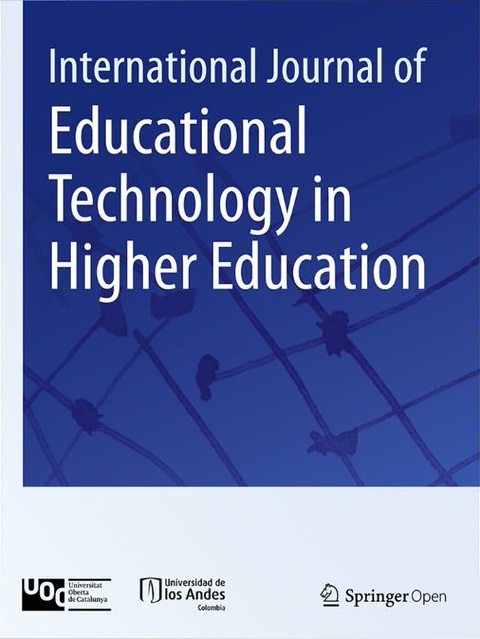Stakeholders’ Perspective on the Quality of Virtual Learning Material in Google Classroom
IF 16.7
1区 教育学
Q1 EDUCATION & EDUCATIONAL RESEARCH
International Journal of Educational Technology in Higher Education
Pub Date : 2023-10-23
DOI:10.46328/ijte.571
引用次数: 0
Abstract
The COVID-19 pandemic stimulated education system worldwide to employ online learning to support learning despite difficult times. To respond to this challenge and to promote Sustainable Development Goal (SDG) 4, advocating quality education, a virtual learning material (VLM) for Biology was articulated in Google Classroom. Accordingly, this study aimed to evaluate its acceptability and conformity to the international standards for online courses using the Open SUNY Course Quality Review (OSCQR) rubric as the questionnaire. Respondents (N=40) involved four stakeholders: Senior High School Students, Pre-service Science Teachers, High School Teachers, and Science Instructors/Professors, with n=10 representatives each group. Their perspectives of the VLM acceptability in terms of Overview and Information, Technology and Tool, Design and Layout, Content and Activities, Interaction, and Assessment and Feedback were obtained through a Google Form by rating the 50-item questionnaire on a 4-point Likert scale together with two open-ended questions. With a grand mean of 3.81(SD=0.40), the findings revealed highly acceptable results. The qualitative responses also substantiated this result. Significant differences in the responses are also discussed, while the Cronbach alpha reliability test is high (α=0.923). Significantly, the VLM conforms with the international standards for online course design, suggesting it can be implemented among target students.利益相关者对谷歌课堂虚拟学习材料质量的看法
新冠肺炎疫情促使全球教育系统在困难时期采用在线学习来支持学习。为了应对这一挑战,并促进可持续发展目标(SDG) 4,倡导优质教育,谷歌课堂阐述了生物虚拟学习材料(VLM)。因此,本研究旨在评估其可接受性和符合国际标准的在线课程,使用开放纽约州立大学课程质量审查(OSCQR)的标题作为问卷。受访者(N=40)涉及四个利益相关者:高中学生、职前科学教师、高中教师和科学讲师/教授,每组N= 10名代表。他们在概述和信息、技术和工具、设计和布局、内容和活动、互动、评估和反馈方面对VLM可接受性的看法是通过谷歌表格通过对50个问题的4分李克特量表和两个开放式问题进行评分来获得的。大平均值为3.81(SD=0.40),结果显示高度可接受。定性反应也证实了这一结果。问卷调查结果显示,问卷调查结果具有显著性差异,Cronbach α信度检验较高(α=0.923)。值得注意的是,VLM符合网络课程设计的国际标准,可以在目标学生中实施。
本文章由计算机程序翻译,如有差异,请以英文原文为准。
求助全文
约1分钟内获得全文
求助全文
来源期刊
CiteScore
19.30
自引率
4.70%
发文量
59
审稿时长
76.7 days
期刊介绍:
This journal seeks to foster the sharing of critical scholarly works and information exchange across diverse cultural perspectives in the fields of technology-enhanced and digital learning in higher education. It aims to advance scientific knowledge on the human and personal aspects of technology use in higher education, while keeping readers informed about the latest developments in applying digital technologies to learning, training, research, and management.

 求助内容:
求助内容: 应助结果提醒方式:
应助结果提醒方式:


